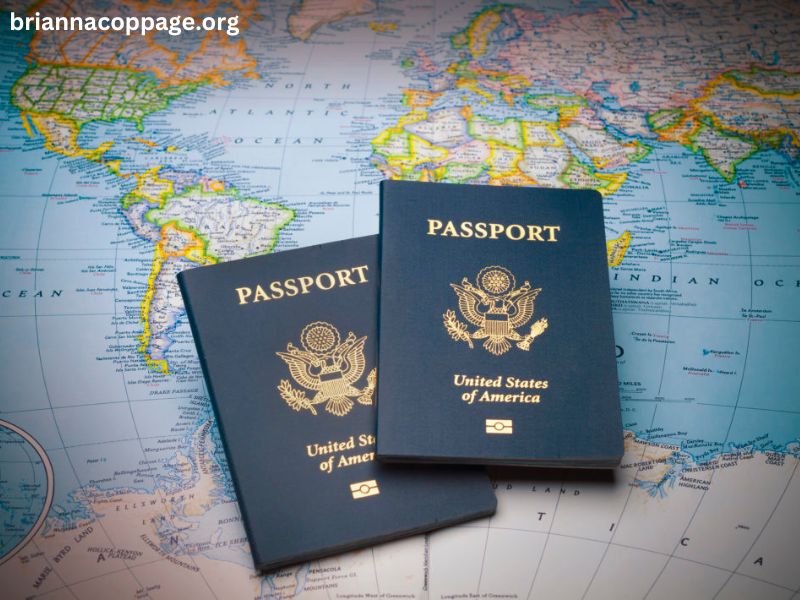Traveling abroad can be an enriching experience, but it also comes with its own set of challenges and risks, particularly when it comes to security and safety. For individuals affiliated with government agencies, the military, or certain corporations, receiving a defensive foreign travel briefing is an essential part of preparing for international travel. But how often should these briefings occur? This article will explore the purpose, frequency, and significance of these briefings, as well as best practices for ensuring that travelers are adequately prepared.
Understanding Defensive Foreign Travel Briefings
Defensive foreign travel briefings are designed to equip travelers with the necessary knowledge and skills to navigate potential threats while abroad. These briefings cover various topics, including:
- Security Risks: Understanding the local political climate, crime rates, and specific threats (such as terrorism).
- Cultural Sensitivity: Learning about cultural norms and practices to avoid misunderstandings.
- Health Precautions: Being aware of necessary vaccinations, health risks, and emergency medical services.
- Emergency Protocols: Knowing what to do in case of an emergency, such as natural disasters, civil unrest, or personal attacks.
The goal of these briefings is to empower travelers with the tools they need to make informed decisions and to minimize risks while abroad.
Who Requires Defensive Foreign Travel Briefings?
Defensive foreign travel briefings are particularly crucial for:
- Government Employees: Those who work for federal, state, or local governments, especially in sensitive roles.
- Military Personnel: Members of the armed forces traveling for training, deployment, or assignments.
- Corporate Employees: Staff from multinational companies or organizations operating in high-risk areas.
- Non-Governmental Organizations (NGOs): Individuals working in international development, humanitarian aid, or relief efforts.
Given the unique risks each of these groups faces, tailored briefings are often provided to address specific concerns relevant to their work and travel.
How Often Should Briefings Occur?
The frequency of defensive foreign travel briefings can depend on various factors:
1. Nature of Travel
- Routine vs. High-Risk Travel: Those traveling to high-risk areas (e.g., regions with ongoing conflict, high crime rates, or political instability) may need briefings more frequently—perhaps before every trip. Conversely, individuals traveling to low-risk areas may receive briefings less often.
2. Changes in Conditions
- Dynamic Environments: Security conditions can change rapidly. Travelers should receive updated briefings when significant geopolitical events occur in their destination country or if there are changes in local laws, travel advisories, or health alerts.
3. Organizational Policy
- Agency Requirements: Some organizations have specific policies regarding briefings. For instance, the U.S. Department of State requires government employees to receive a briefing for certain countries. Organizations may mandate annual briefings or pre-deployment briefings before international assignments.
4. Personal Experience
- Frequency of Travel: Individuals who travel frequently may benefit from more regular briefings to keep updated on risks and safety measures. Those who travel infrequently may require a more comprehensive overview each time.
5. Individual Risk Assessment
- Tailored Briefings: A personalized assessment based on an individual’s profile (e.g., job role, destination, and personal circumstances) can determine how often a briefing should occur. Those with previous travel incidents or specific vulnerabilities may need more frequent updates.
6. Legislative Requirements
- Compliance with Regulations: Some industries and government agencies may be bound by regulations that dictate the frequency of travel briefings. Compliance ensures not only the safety of individuals but also the protection of organizational interests.
Best Practices for Defensive Foreign Travel Briefings
To maximize the effectiveness of defensive foreign travel briefings, organizations and travelers can adopt the following best practices:
1. Tailor the Content
Each briefing should be customized based on the traveler’s specific destination, purpose of travel, and known risks. Generic briefings may not address unique threats or local customs.
2. Incorporate Real-Time Updates
Integrating real-time information into briefings can significantly enhance their relevance. Using tools like social media, news alerts, or government advisories can help keep travelers informed about ongoing situations.
3. Conduct Interactive Sessions
Interactive briefings, where travelers can ask questions and engage in discussions, often lead to better retention of information. Role-playing scenarios can help prepare travelers for potential situations they might encounter.
4. Use Multimedia Tools
Incorporating videos, infographics, and other multimedia tools can make the content more engaging and easier to understand. Visual aids can help travelers better remember key information.
5. Encourage Follow-Up Training
Periodic refresher courses or follow-up training sessions can reinforce the information presented in the initial briefings. This is particularly useful for individuals who travel frequently or to high-risk areas.
6. Solicit Feedback
Gathering feedback from travelers about the briefing process can help improve future sessions. Understanding what information was helpful or lacking can lead to more effective training.
7. Establish a Point of Contact
Providing a dedicated point of contact for travelers to reach out to while abroad can be invaluable. This person can offer guidance, assistance, and updates as needed.
The Importance of Defensive Foreign Travel Briefings
The significance of defensive foreign travel briefings cannot be overstated. These sessions serve not only to protect individual travelers but also to safeguard organizations and national interests. Here are some key reasons why these briefings are crucial:
- Enhancing Safety: Well-informed travelers are better equipped to identify and mitigate risks, thereby enhancing their safety and that of those around them.
- Increasing Situational Awareness: Understanding the local environment, cultural norms, and potential threats allows travelers to navigate their surroundings more effectively.
- Reducing Liability: Organizations that provide regular and thorough briefings may be less exposed to liability should incidents occur during travel, as they can demonstrate that they took reasonable steps to ensure employee safety.
- Building Confidence: When travelers feel prepared, they are more likely to engage positively with their surroundings, fostering better interactions and experiences.
- Promoting Organizational Reputation: Demonstrating a commitment to traveler safety enhances an organization’s reputation, making it more attractive to potential employees, partners, and clients.
Conclusion
In an increasingly interconnected world, the need for comprehensive defensive foreign travel briefings has never been more critical. The frequency of these briefings should be determined by various factors, including the nature of travel, changes in local conditions, organizational policies, and individual risk assessments. By following best practices and prioritizing traveler safety, organizations can ensure that their employees are well-prepared to face the challenges and risks of international travel. Ultimately, these briefings play a vital role in fostering a culture of safety and preparedness, allowing individuals to explore the world with confidence.






